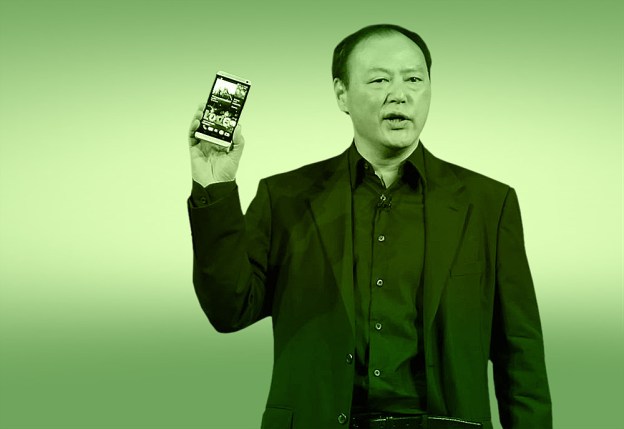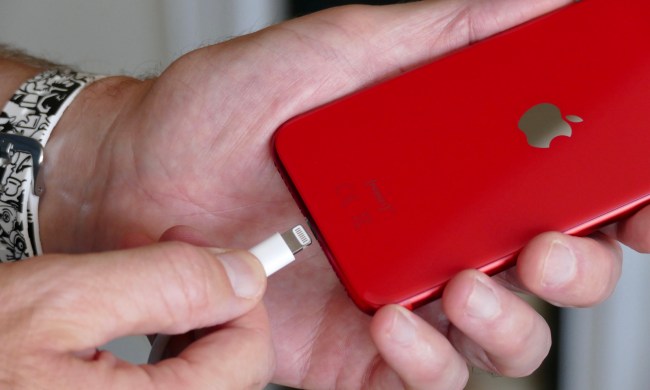
Peter Chou cannot be sleeping well, as of late. As CEO of the embattled smartphone maker HTC, he has laid everything on the line for the One. He’s so invested and confident in his company’s new flagship smartphone that he told senior executives that he would step down as CEO if it failed, according to the WSJ.
He may want to start packing his bags.
The HTC One is, most likely, not going to turn things around for HTC. It doubles down on the exact same strategy that HTC used to push its flagship phone, the One X, last year. And that one didn’t sell too well.
It’s a beautiful Android phone, but like the One X:
- It has a name that sounds strange and confusing when you say it out loud
- It has a great camera, but its ‘revolutionary’ features (Ultrapixels and Zoe) come up short
- It has a custom interface that looks good, but annoys some users
- It isn’t being released on all major carriers
- It’s been delayed for various reasons (last year, the One X and Evo 4G LTE were delayed due to a patent lawsuit)
- It has no winning advertising or marketing campaign behind it
- It’s going head to head with a new Galaxy S flagship phone
You could argue any one of these points, but all together it’s the same old song and dance for HTC. We aren’t particularly enthusiastic about the One ourselves (read our full review). While Samsung has successfully built its smartphone brand around a line of “Galaxy” phones, releasing them on every major wireless carrier in the U.S. and abroad, HTC has been unable to keep up. Its sales have been so bad for the last year that the One actually saw delays this year because parts manufacturers downgraded HTC’s importance. Now it faces an uphill struggle to even construct the phones it needs to compete with the Apples, LGs and Samsungs of the world.
HTC’s historic rise and fall
It’s sad, really. HTC, co-founded by Chou, is one of the pioneering companies behind smartphones, and paid its dues for more than a decade, pushing smartphones toward the culture-changing devices they have become today. HTC made some of the first touch and wireless mobile devices in the late 1990s, and created the first Windows Mobile smartphone in 2002. Remember the Treo? HTC made that. It even had the foresight to bet on Google. Chou and company released the HTC Dream (the T-Mobile G1 here in the States) in 2008 – the device that kicked off the era of Android. As BlackBerry was twiddling its thumbs and Samsung was releasing crappy iPhone ripoffs like the Instinct, HTC was already investing in the post-iPhone market. It’s early adoption of Android helped it finally become a top-tier manufacturer.

So what happened? In 2010 and 2011 Chou rode the Android wave with the Motorola Droid, and saw wide adoption of its phones. Everyone seemed to be buying Sensations, Desires, Incredibles, and Evos. The HTC EVO 4G on Sprint was even the first 4.3-inch Android phone, kicking off the race toward big screens.
High on the sales growth it saw on Android, HTC went crazy, producing an “incredible” number of Android phones in 2010 and 2011:
- 2009: 4 Android phones released
- 2010: 12 Android phones released, 4 Windows Phones
- 2011: 22 Android phones released, 3 Windows Phones
- 2012: 11 Android Phones released, 2 Windows Phones
- 2013: 1 Android phone almost released
HTC’s tagline is “quietly brilliant,” but in these two years it was quietly flooding the market with devices.
A lot of HTC’s early phones had problems, both because of buggy early versions of Google’s Android OS and because of HTC’s Sense user interface, which continually grew more complicated and buggy. Many HTC phone owners complained of lack of updates and bug fixes. Early LTE phones like the HTC ThunderBolt also suffered horrifically poor battery life, among other problems. HTC turned itself into a powerful phone factory, but neglected users after its phones launched.
In late 2011, Samsung began to push its signature Galaxy S2 phone on all carriers, stealing momentum from HTC across the board. It invested heavily in Apple attack ads and pushed its Note and Galaxy S2 and S3 phones to go viral. HTC, on the other hand, has never had a very strong marketing campaign or a crystal-clear brand image. Like it’s tagline, it can, at times, be “brilliant,” but it is almost always too quiet.

After Samsung started gaining momentum, instead of just going into a store and buying the neatest looking Android phone, which was often an HTC, people began specifically wanting a Galaxy. To respond, HTC attempted to refocus around its new “One” brand in 2012, and halved its phone output to only 11 Android phones and 2 Windows Phones, but its sales continued to drop and its profits fall. The One brand failed to take off in the shadow of the Galaxy S3, which became so popular that it rivaled the iPhone. And in 2013, HTC really has released only One device.
Don’t double down on a loss, Peter
The HTC One is a good phone, much like the One X was a good phone, but HTC has no identity. HTC rode to success by being an early adopter of Android, but it fell off the grid the moment it had to exert any muscle to defend its position. We can’t say if HTC users have largely abandoned it due to issues they had with early phones or if it’s a branding and advertising issue (probably both), but few people seem to be desiring HTC right now. Even it’s Windows Phones have been largely eclipsed by Nokia’s Lumia line.
Peter Chou has made a lot of good decisions as CEO of HTC, but with Android, he got overzealous. Users are fickle. But doubling down didn’t work in 2011 when Chou literally doubled the number of phones HTC released, and it won’t work this year. The One brand didn’t take off last year, and a fancy new aluminum chassis isn’t going to stem the tides of Samsung and Apple this year. If Chou sticks to his promise, he’s soon going to need a new job. Because, in a crazy market like mobile, One day you’re in, and the next day you’re out.


